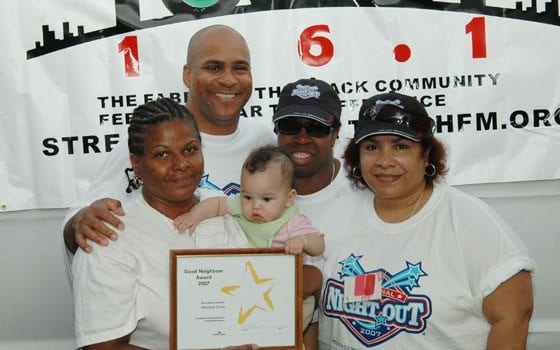
Pete Tridish, founder of the Prometheus Radio Project, a nonprofit group dedicated to low-power radio, was especially blunt in his criticism of large commercial radio owners.
“I hope that the wild goose chase for interference — and the claim that a dinky hundred-watt community station can cause this kind of problem for a 20,000-watt commercial station — can finally come to a close,” Tridish wrote on the Prometheus Web site. “I know some lobbyists at the National Association of Broadcasters may not know what to do without low-power FM radio to beat up on anymore, but I’m sure they can find gainful employment searching for other imaginary things, like African uranium shipments to Iraq.”
But McCain’s bill stalled in Congress, leaving countless community radio station owners left in limbo.
And at the whim of the FCC.
In 2000, the federal regulatory agency authorized a new affordable community radio service “to enhance locally focused community-oriented radio broadcasting.” Through the creation of low-powered radio stations, the FCC wanted “to create opportunities for new voices on the air waves and to allow local groups, including schools, churches, and other community-based organizations to provide local programming responsive to local community needs and interest.”
But later that year, Congress delayed implementing the program, largely because of complaints from large commercial radio owners. Congress then ordered the MITRE Corp. study.
The study cost nearly $2.2 million, and according to legislation filed last year to allow low-power stations to operate — legislation similar to McCain’s 2004 bill — delayed “millions of Americans from having a locally operated, community based radio station in their neighborhood.”
The new Senate bill, introduced last year by Democrat Maria Cantwell of Washington state and supported by McCain, Hillary Clinton and Barack Obama, would order the FCC to ensure that licenses are available to low-power stations and, more important, that those decisions are based “on the needs of the local community.”
For his part, Clemons knows the needs of the community. A disc jockey himself, Clemons is proud that he plays music that doesn’t use profanity, degrade women or promote violence.
Clemons is also proud that his station is about more than just music. In less than three years, TOUCH has become an integral part of the African American community here in Boston.
Don’t get Clemons started on the FCC fine.
“Why would they give us a fine if they already know that our station doesn’t interfere with other larger stations?” Clemons asked. Then he answered.
“Is it because you don’t want to raise the level of consciousness in communities of color? Is it because you don’t want to stop the violence in communities of color? Is it because you don’t want to unite the families of color in communities of color?”
The point, Clemons said, is that in Boston, “communities of color need a voice — an equal and just voice.”
MC Spice, the station’s program manager and host of its “The Big Morning Thing” talk show, said he will lead the protest in front of the FCC building in Quincy.
“We could just shy away and pay the fine,” MC Spice said. “Or we can challenge the FCC and show the world what low-power radio stations must endure to provide programming that is relevant to our communities.”
To MC Spice, the choice was simple.
“We are going to fight,” he said.
The race question is not lost on Capital Hill.
U.S. Rep. Edward Markey, D-Mass., chairman of the House Subcommittee on Telecommunications and the Internet, has direct oversight over the FCC.
In a prepared statement delivered during a March 2007 congressional hearing, Markey said that he was “very concerned about the abysmal lack of broadcast licenses that are held by minority-owned and women-owned businesses.”
“It is important to remember,” Markey said, “that half of the country is women and 35 percent are minorities. Yet women and minorities today reportedly hold less than 4 percent of FCC broadcast licenses. This is something that Congress and the FCC should find creative ways to remedy …”






